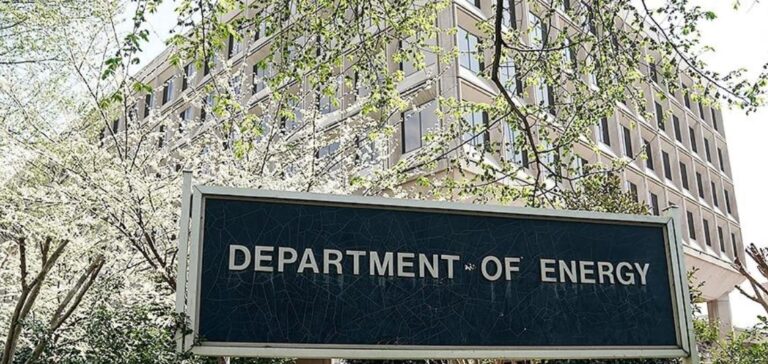As part of President Biden’s “Investing in America” program, the U.S. Department of Energy (DOE) announced today that three states, three tribal nations, and the Alaskan Native Corporation will receive a combined total of $29.9 million for the Grid Resilience State and Tribal Formula Grants.
Investments in clean, reliable electricity: DOE distributes nearly $354 million in subsidies
Supported by the Bipartisan Infastructure Law and administered by DO’s Office of Network Deployment. These grants will help modernize the power grid to reduce the impact of extreme weather conditions and natural disasters, while ensuring the reliability of the electricity sector.
Thanks to this funding, all communities will have access to clean, reliable and affordable electricity, while helping to achieve the President’s ambitious clean energy goals.
“Every community deserves a clean, affordable source of energy for their homes and businesses, a need that is only exacerbated by extreme weather events like the historic floods and scorching heat waves hitting parts of the country this summer,” said U.S. Secretary of Energy Jennifer M. Granholm.
“Thanks to transformative investments in grid infrastructure under President Biden’s Invest in America program and the Bipartisan Infrastructure Law, we’re preparing the country for a more resilient, cleaner energy future.”
Including today’s funding, DOE has distributed nearly $354 million in Grid Resiliency Formula grants to 23 states, the District of Columbia and 12 tribal entities since May.
Priority energy projects: States and tribes to benefit from DOE grants announced
This fourth tranche of funding will be paid to the following beneficiaries:
Connecticut will support the efficient and reliable integration of variable energy resources. As well as distributing the resources needed to achieve the state’s zero-carbon electricity sector objective. And avoid fossil fuel production. The funds will be used to improve reliability. Aisni that the resilience of the system in a variety of weather and storm conditions and to attract, train and retain a skilled local workforce, particularly from disadvantaged communities.
- (Amount: $6.5 million). Cook Inlet Region Inc. reduce the impact of disruptive events on critical installations. And it will support workforce development and tackle outdated or failing network infrastructure.
- (Amount: $500,000). Middletown Rancheria, from Pomo Indians of California, will develop distributed energy resources and microgrids. To increase the resilience of electricity supply, tackle tribal energy justice. To reduce the impact on disadvantaged communities, and support the development of the energy workforce.
- (Amount: $287,000). The Muscogee (Creek) Nation will use the funding to support essential tribal facilities, implement technologies. To improve and update network control and operational infrastructure. And be able to support tribal workforce development.
- (Amount: $1.8 million). Ohio will improve grid reliability by reducing the frequency and duration of outages in disadvantaged communities, while improving resilience to all hazards. In particular, future climate impacts. Grants will be used to demonstrate community benefits. This is achieved through measures developed with community participation, with a focus on improving the customer experience and communication.
- (Amount: $14 million). Vermont will improve energy resilience and reliability through priority investments in disadvantaged communities and critical facilities. By optimizing the use of existing network infrastructures through innovative solutions. The funds would also support the retention and expansion of the energy sector’s specialized workforce.
- (Amount: $6 million). Dot Lake Village will reduce the risk of breakdowns through asset management and preventive maintenance. As well as planning the development of battery storage for essential installations. The tribe will advance energy justice by addressing the energy burdens of low-income tribal members and disadvantaged communities. (Amount: $149,000)
Network resilience grants: $2.3 billion over five years.
Over the next five years, DOE will distribute $2.3 billion in state and tribal formula resiliency grants to the grid. Based on a formula that takes into account population size, land area, probability and severity of disruptive events, and a locality’s historical spending on mitigation.
States, territories and tribes will then allocate these funds to carry out a diverse range of projects. By prioritizing efforts that generate the greatest community benefits while providing clean, affordable and reliable energy. Grille Resilience Formula Grant recipients are announced on an ongoing basis as applications are received.





















